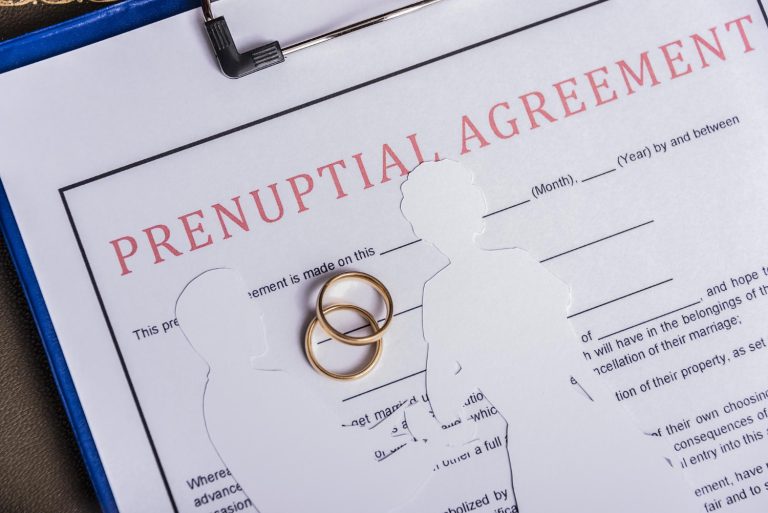When it comes to protecting your assets and defining your financial boundaries, prenuptial agreements are essential. But how are these agreements enforced? At MenduniMartindill, we have years of experience in ensuring that your prenuptial agreement is respected and upheld. Let me guide you through the critical steps and legal considerations to help keep your financial future secure.
As indicated in legal guidelines, a prenuptial agreement is enforced by ensuring it is written, signed by both parties, and notarized. Additionally, it must be fair and fully disclose all assets. Courts review the agreement for any signs of fraud or coercion.
What Is a Prenuptial Agreement?
A prenuptial agreement can outline the division of assets in unique ways, including provisions for pet custody.
A prenuptial agreement explains how you and your spouse will split your things and debts if you get divorced. It can also cover topics like spousal support and who owns what property. People often get these agreements to protect what they owned before getting married.
They can also help set clear financial expectations and prevent fights if you split up. Prenuptial agreements aren’t only for rich people; any couple can use them to safeguard their finances. It’s very important to talk to a lawyer to make sure the prenuptial agreement is legal and fair for both sides.
Legal Requirements for Prenuptial Agreements
Prenuptial agreements are legally binding contracts that can specify asset and debt division, but must meet stringent legal requirements to be enforceable in court.
For a prenup to be legally valid, it needs to meet certain conditions. These include:
- Both partners must fully share their assets and debts.
- Both partners must agree willingly and fully understand what they are agreeing to.
- The prenup must be written down and signed by both partners.
Each partner should have their own lawyer to protect their interests. Predominantly, the prenup cannot be extremely unfair to one partner, go against public policies, or be based on lies.
Both partners should carefully think about the terms and get legal advice before signing. If these conditions are not met, a court might cancel the prenup during a divorce.
It’s essential to talk to a family law attorney to make sure the prenup is legally sound and to protect your interests in case of divorce.
Common Terms in Prenuptial Agreements
Prenuptial agreements often include clauses not only on asset and debt division but also on spousal support, inheritance rights, and even pet custody in the event of divorce or separation.
Some common terms in these agreements include how to divide property, spousal support, and inheritance rights. The agreement might also say how future income and assets will be handled and set any limits on financial responsibilities between spouses. It’s important for both people to share all their assets and debts and to get their own legal advice when making a prenuptial agreement, so it’s fair and legally-binding.
Prenuptial agreements are often used to protect people with lots of assets or businesses and to make financial matters clear and reassuring if there is a divorce. Both people should carefully think about the terms of the agreement to make sure it matches what they want and expect for their marriage.
Process to Enforce a Prenuptial Agreement
A prenuptial agreement can only be enforced if it is valid and legally binding.
Both people must agree to the prenuptial voluntarily, understanding everything and clearly sharing their assets and debts. The agreement should be written, signed by both, and ideally witnessed by a notary.
If someone thinks the prenuptial isn’t valid, they can challenge it in court. They might claim it was forced, fraudulent, made when they were not mentally capable, or very unfair. They need to prove one of these things to cancel the agreement.
To enforce the prenuptial, collect all needed documents and evidence to show it’s valid. This can include financial records, emails, texts, or witness statements.
After gathering evidence, you can file a lawsuit in court. Follow the correct legal steps and deadlines. You might need to go to court hearings or mediation to settle the issue.
If the court finds the prenuptial valid, it will enforce it. Both people must follow what it says, which could cover how assets are divided, spousal support, or other terms agreed before marriage.
Challenges to Enforcing Prenuptial Agreements
One challenge in enforcing prenuptial agreements is proving that both parties willingly signed without any coercion or pressure.
There might be disagreements about whether both people really understood the agreement or got enough legal advice before signing it.
Another issue is whether the agreement is still fair when it’s time to enforce it. Situations can change, like one person becoming much wealthier, which might make the original agreement seem unfair. This can cause debates over whether the agreement still matches what both people wanted.
If one person says the agreement is extremely unfair or that they didn’t get all the financial information from the other person, making the agreement enforceable can be tougher. In general, proving these claims can be hard and might need a lot of legal work.
Enforcing a prenuptial agreement can be tricky if someone argues it’s invalid because of legal technicalities or if it goes against public rules. Courts might not want to enforce agreements they see as unfair or against public interests.
Enforcing prenuptial agreements can be difficult due to concerns about whether both people signed voluntarily, fairness, full financial disclosure, extreme unfairness, and public policy. It needs careful thinking about the situation and could involve complicated legal discussions and proof.

Rounding it Up
A prenuptial agreement can be enforced through various legal measures, such as ensuring it is properly drafted, signed voluntarily, and meets all legal requirements.
What MenduniMartindill is recommending to collect is, additionally, both parties must disclose all assets and liabilities, and the agreement should not be unconscionable or unfair. Overall, enforcing a prenuptial agreement requires careful consideration and adherence to legal guidelines.






